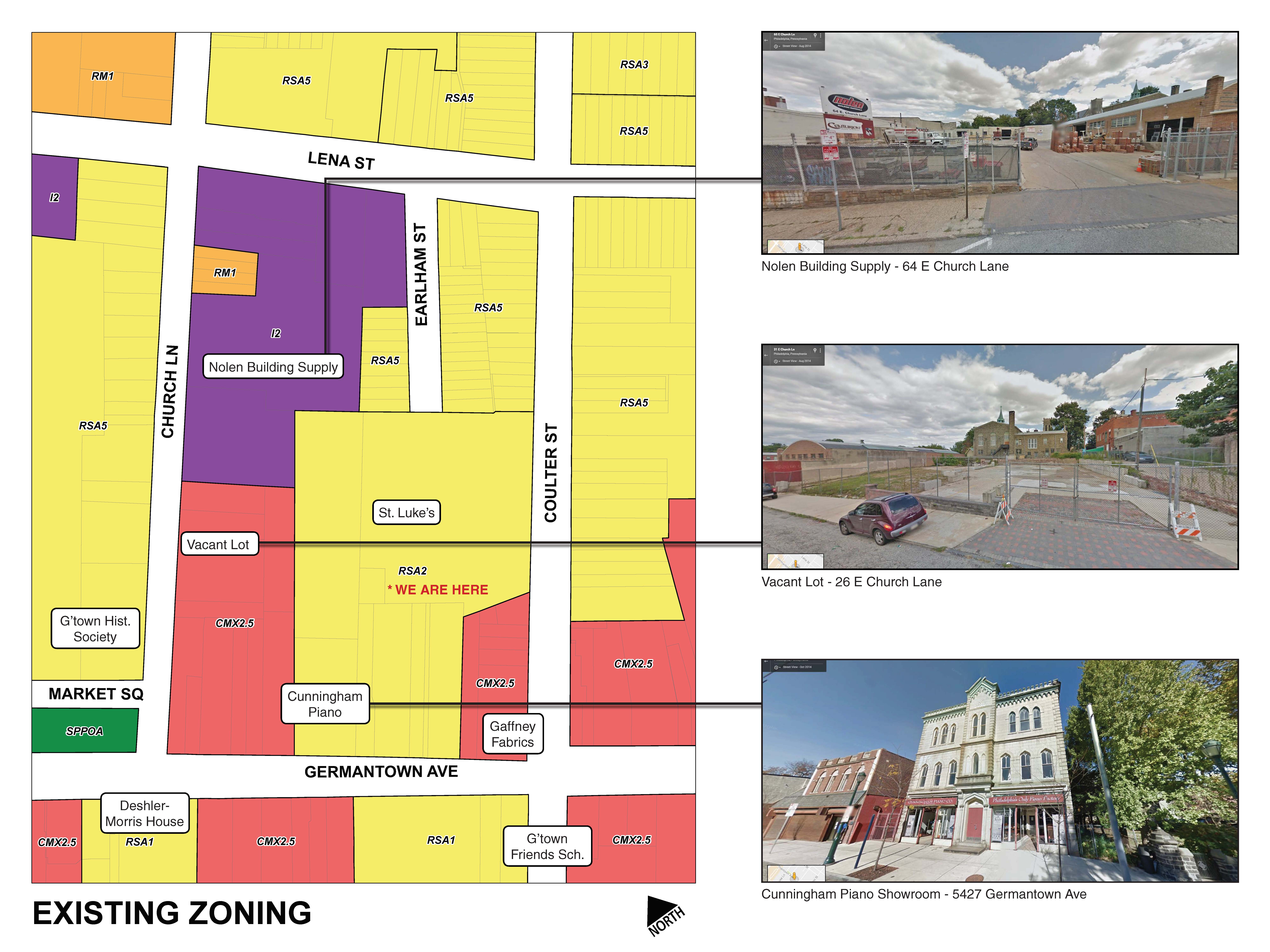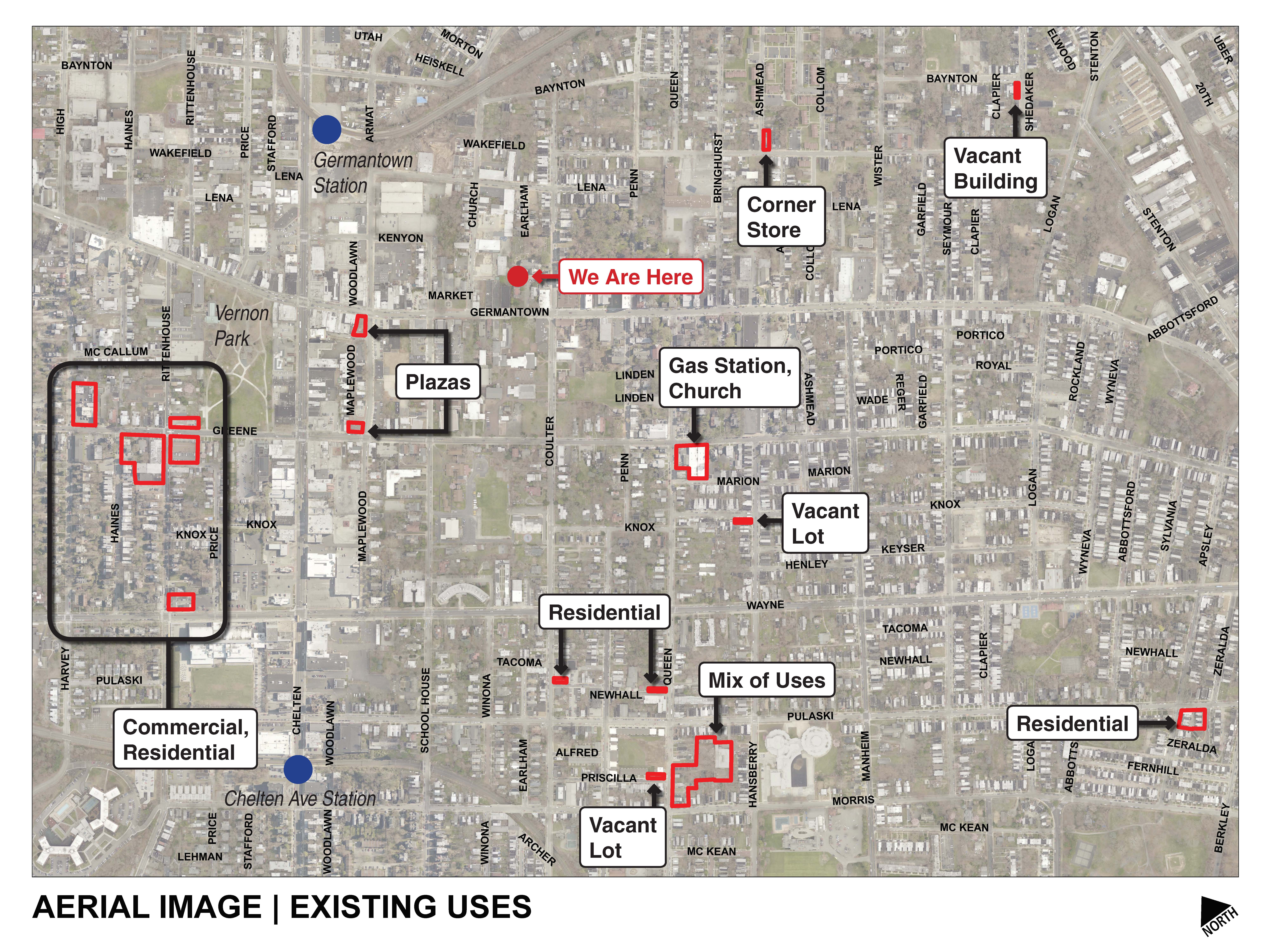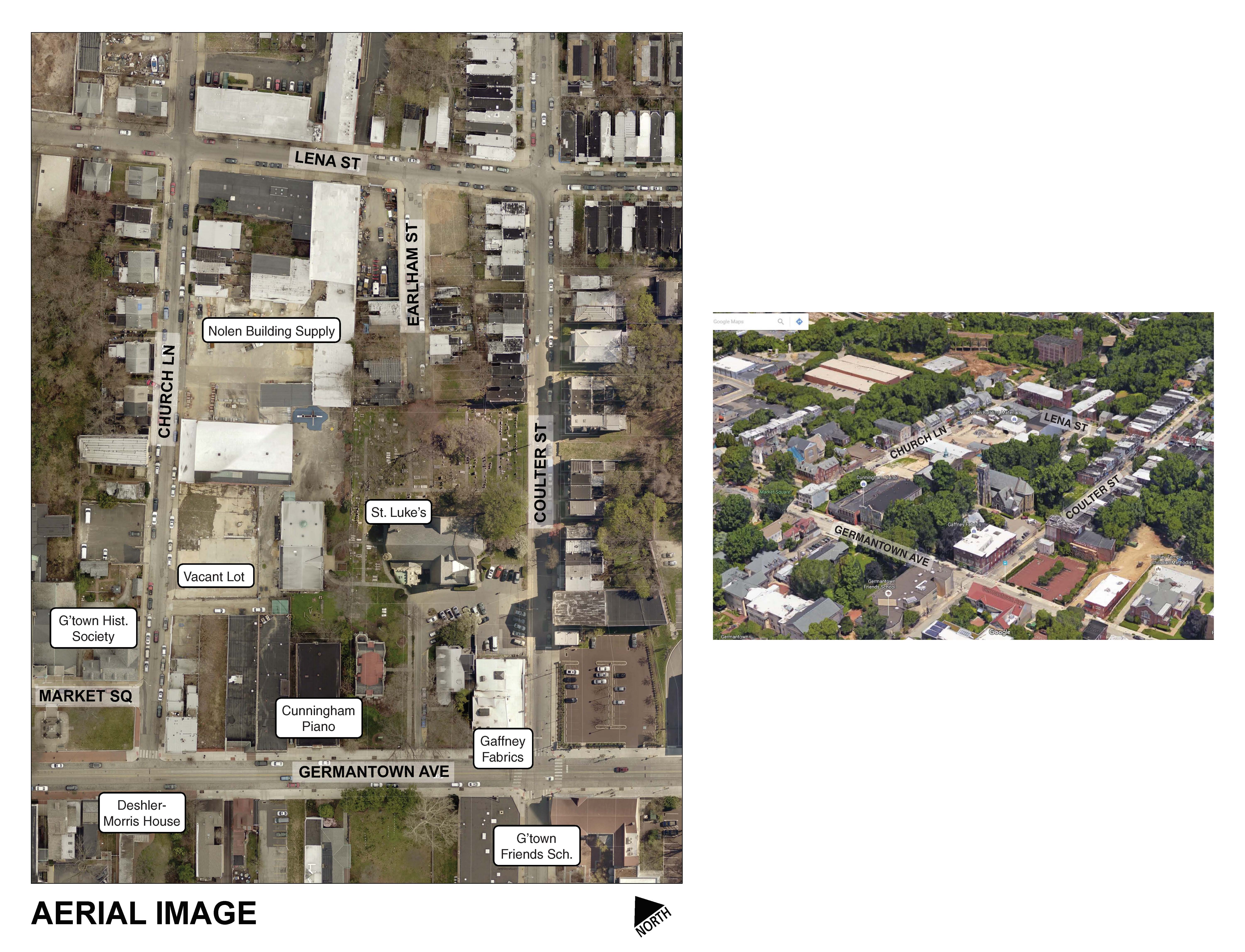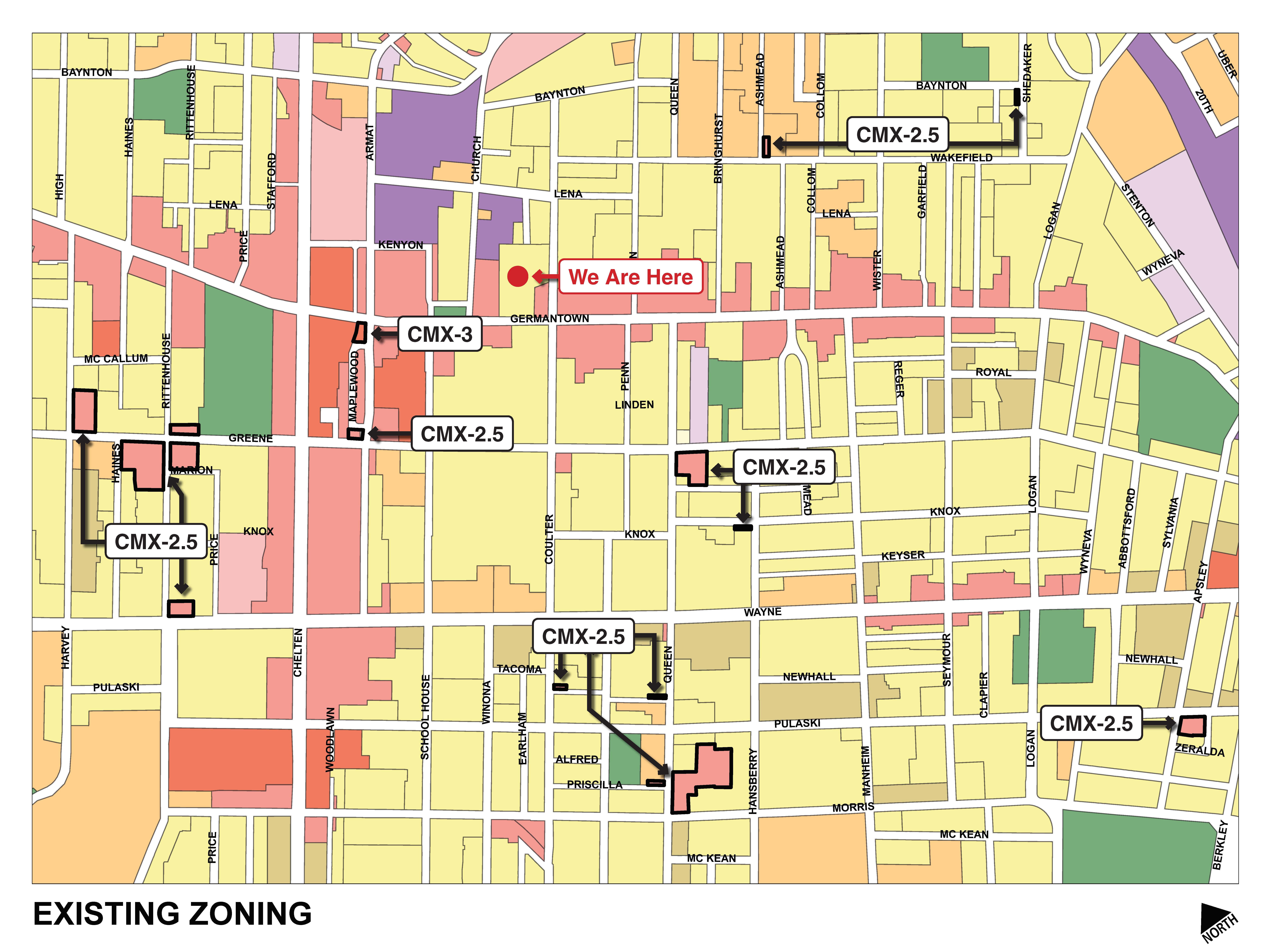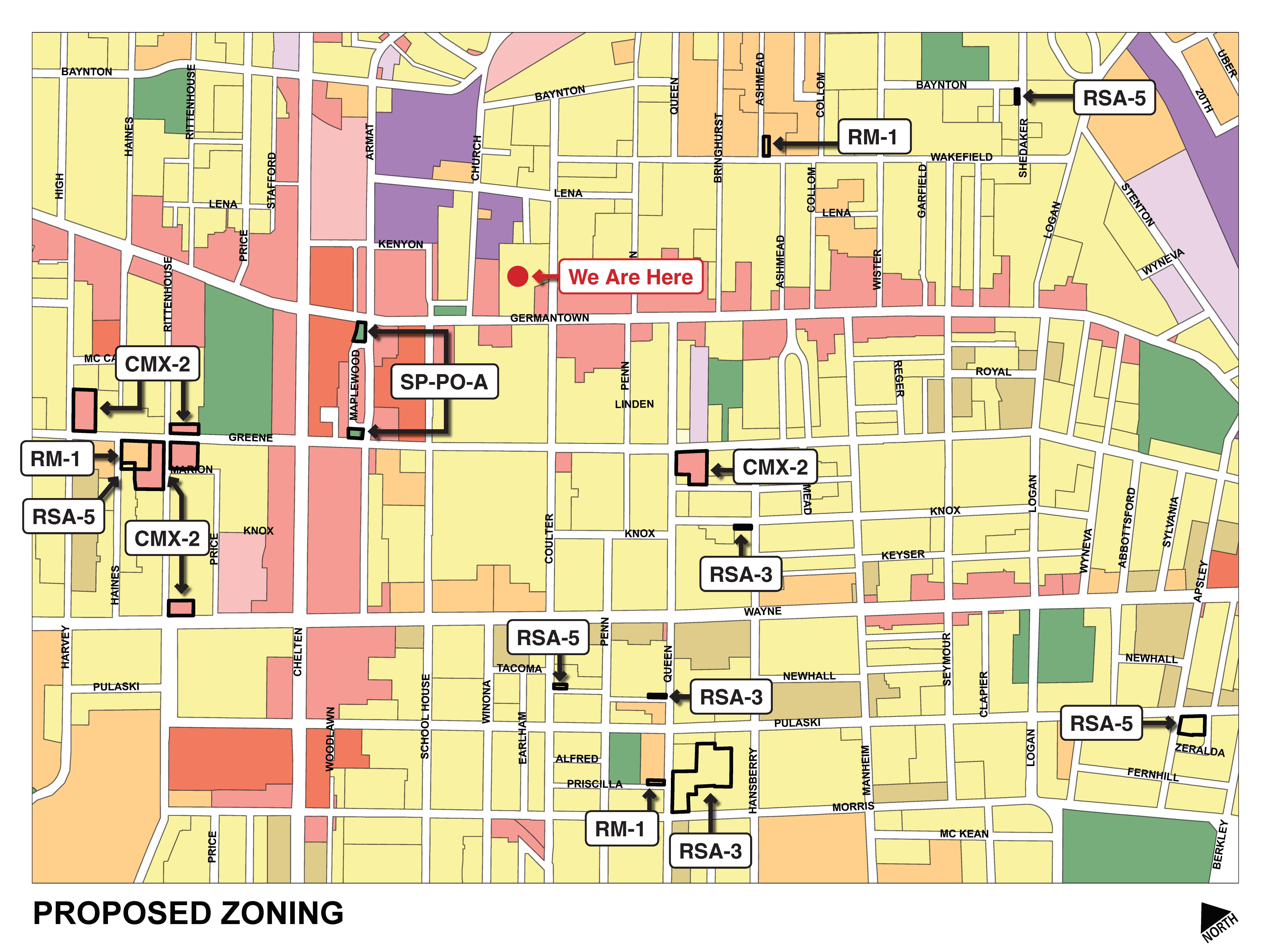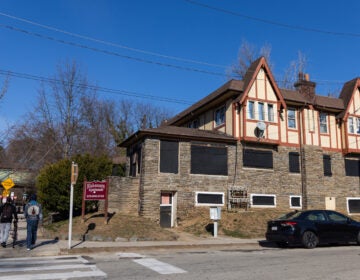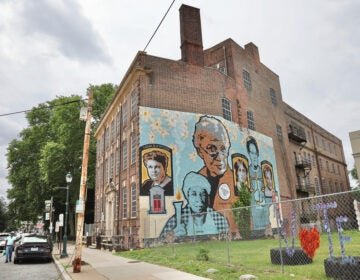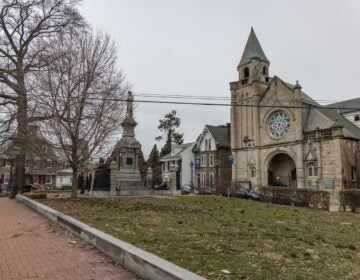Rezoning proposed in Germantown for Cunningham Piano showroom reuse
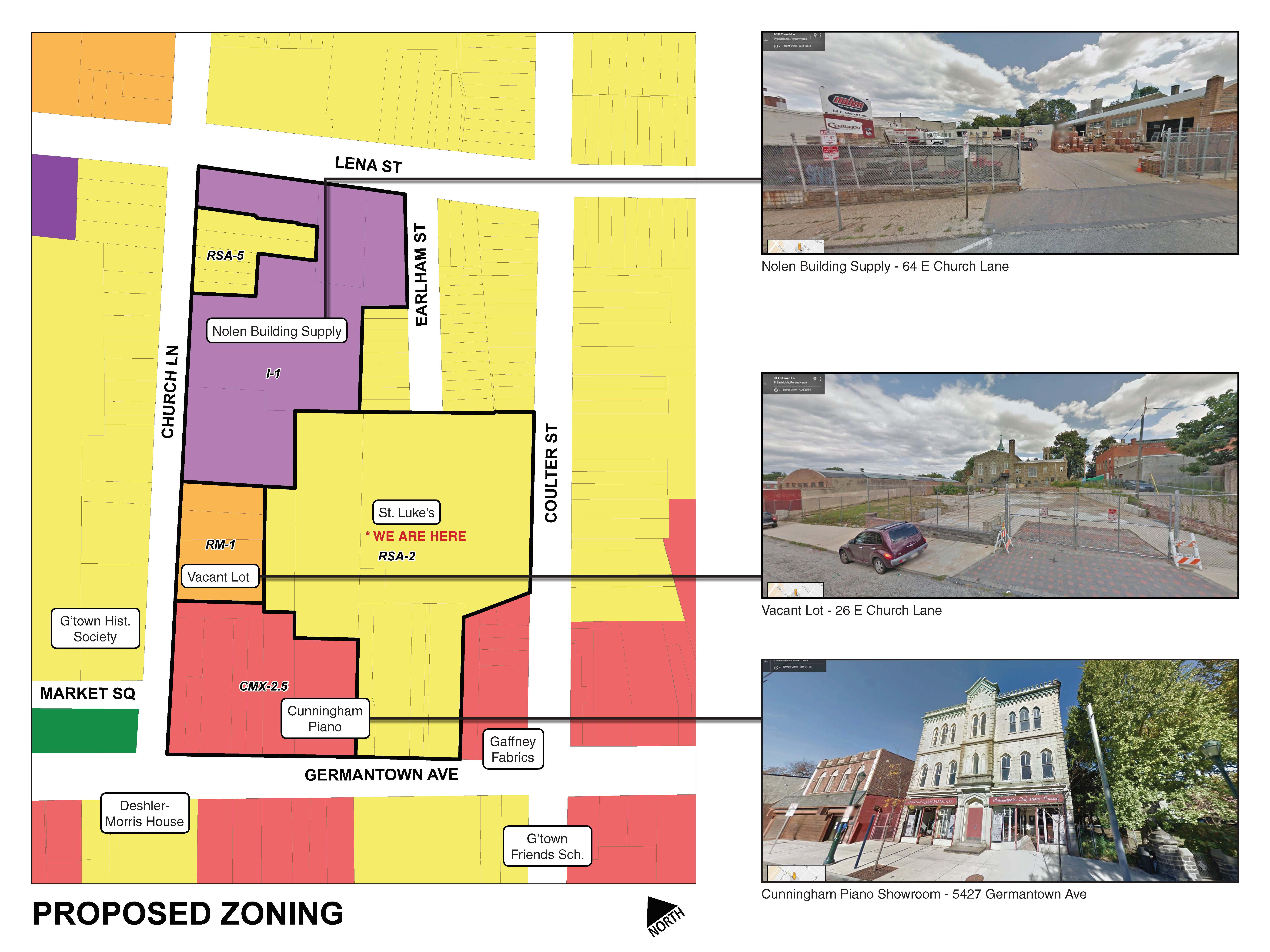
At a Tuesday night meeting, dozens of community members greeted developer Ken Weinstein’s latest proposal for Germantown Avenue with appreciation and a dash of suspicion. Philly Office Retail’s designs for the beloved Cunningham Piano showroom building on Germantown Avenue generally found approval in the packed house at St. Luke’s Episcopal Church.
However, some neighbors were frustrated by the company’s process for securing the appropriate zoning. Germantown is part of the Upper Northwest, which is expected to go through the city’s district planning process and any subsequent zoning remapping, starting next year. Meantime the current zoning is still very outdated and large swathes of it make little sense. To deal with the changes needed to make Philly Office Realty’s project work, Weinstein did not request a variance from the Zoning Board of Adjustments, with its accompanying alert to the interested RCOs. Instead Councilwoman Cindy Bass is considering legislation that would rezone the parcel along with a handful of other sites in the surrounding blocks.
Standing before a full house, Weinstein seemed totally at his ease despite a series of skeptical questions—many of them related to parking—from the audience. The Northwest-centric developer presented his plans for the building that houses the Cunningham Piano showroom. He hopes to convert the three story, 21,000 square foot building into two ground floor shops, ideally a café and a restaurant, and 14 apartments.
Weinstein’s interest in the building stretches back years. The iconic business has long toyed with the idea of moving part of its operation out of the city. In the past week, the moving trucks have arrived as Cunningham Piano prepares to open a new showroom in King of Prussia. Its actual workshop, which Weinstein says will include a new local showroom on the third floor, will remain around the corner on Coulter Street.
Assuming all goes ahead as planned Weinstein will close on the Germantown Avenue building in October. Before work begins though, the current zoning must be done away with. It is currently pegged as residential use, despite its long-standing piano sales-related inhabitant. Now that Weinstein wants to install new commercial and residential tenants, transforming it into a mixed-use apartment building, a CMX-2.5 designation is more appropriate.
In addition to making that change, the Planning Commission also proposed a handful of other zoning alterations. The most prominent would result in the downzoning of the Nolen Building Supply property to a lighter industrial designation.
Although the actual development proposal was met with favorable responses, the meeting was peppered with questions about why the zoning changes were being addressed by legislation and not variances.
“This was a request put in our lap, and our job is to go with it and present it to you,” said Matt Wysong, senior planner with the Philadelphia City Planning Commission, explained late in the meeting. “Again, Patrick [Jones] and Shoshana [Bricklin of Cindy Bass’ office] are going to figure out if its best. We feel that zoning remapping is best for the city, for economic development, for community-driven planning, and for achieving the desired outcome for the neighborhood.”
The audience members largely seemed to be appreciative of the project. Most concerns centered on standard worries about parking. But there were also double, triple, and quadruple checks that social services or Section 8 tenants wouldn’t be moved in.
This corner of Germantown is home to several high profile non-profit institutions that have stirred controversy, including a shelter for battered women in another of Weinstein’s buildings and an oft-remarked upon methadone clinic. Much of the stretch of Germantown Avenue where Cunningham Piano’s resides, just to the north of Chelten Avenue, is only patchily developed otherwise. Although there are a variety of institutions lining the street, like Germantown Friends School, the commercial corridor is notably quiet—especially at night.
“This section of Germantown Avenue is a dead zone, the only people walking are the people coming out of the methadone clinic,” says Yvonne B. Haskins, a real estate attorney and local landlord. “It would be very good for safety reasons to have apartments and people living on the avenue.”
For some community members, the legislative means of securing the necessary zoning changes recalled a controversy that played out under the Nutter administration. At that time, Weinstein installed a domestic violence shelter in a building further up Germantown Avenue outside of the variance process and without the accompanying public meetings.
“This is the second time in less than three years that [Philly] Office Retail has skirted the RCO – zoning variance procedure,” wrote Joe McCarthy of Baynton Hill Neighbors RCO in an email. “The proposal seems an appropriate use and the rezoning for the surrounding area seems good. Why is a big developer able to go to the council person who then in turn goes to the planning commission. Is this the new new normal?”
Legislative rezoning of the kind that Bass is considering, also known as spot zoning, is a practice with a long and checkered history. It’s quite common in Greater Center City, where large-scale development pressures are high. But in areas like Germantown, which have more slowly seen redevelopment, the process is rarer and came as a surprise to community groups.
Representatives of councilwoman Bass attended the meeting in force. They were at great pains to assure the massed constituents that their concerns would be heard and that just because the RCOs hadn’t been alerted because of a variance, the community’s voice would still be heard.
“There’s a lot of change going on, especially along Germantown Avenue and we want to find a balance where you guys are happy,” says Patrick Jones, director of constituent services for Councilwoman Bass. “There’s a lot of pain about what went on in the past—the methadone clinic, the Section 8, no places to eat—now we’re looking at ways to invest in Germantown Avenue. This is the initial meeting. There are going to be more and you guys will definitely be an intimate part of planning.”
Wysong spent the rest of the meeting explaining the planning commission’s other plans in the district. These include, in one instance, downzoning corner store locations around Germantown. A handful are currently zoned CMX 2.5, which would allow five story buildings on what are otherwise two-to-three story row house residential blocks. But that part of the presentation involved discussion of parking or RCO process and resultantly only lasted 10 minutes.
“I thought, overall, the neighbors were very supportive of both my project and zoning remapping,” said Weinstein in an email exchange Wednesday morning. “It was one of the best zoning discussions I have heard in a while.”
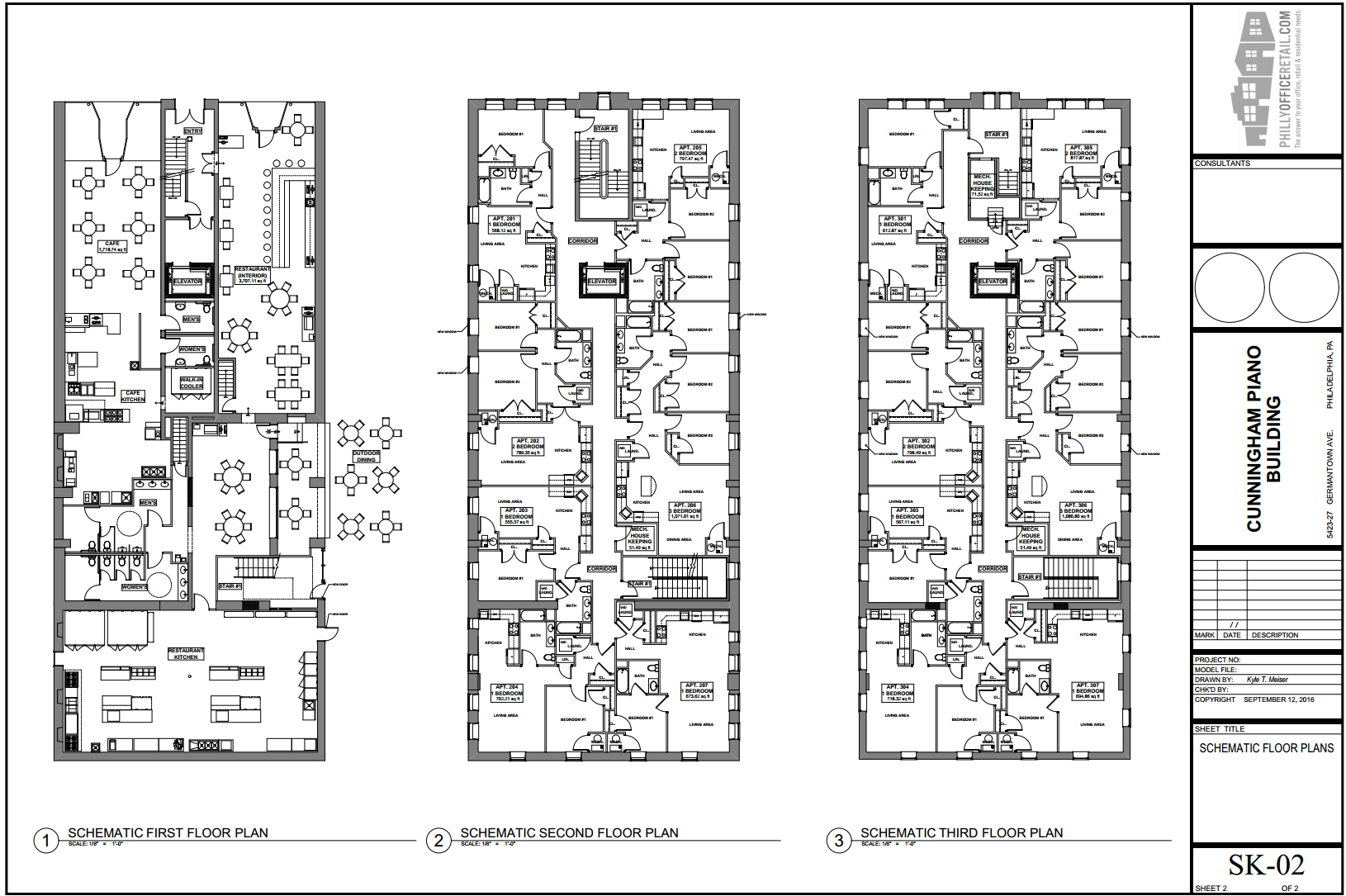
WHYY is your source for fact-based, in-depth journalism and information. As a nonprofit organization, we rely on financial support from readers like you. Please give today.



